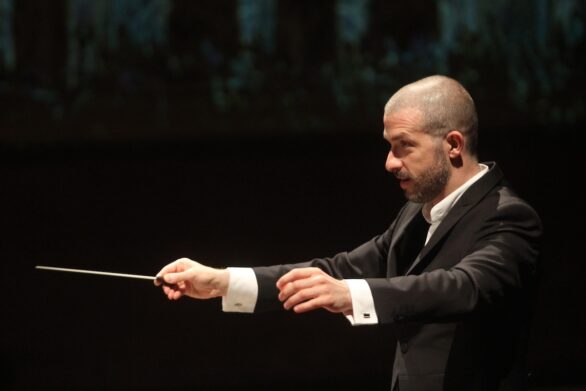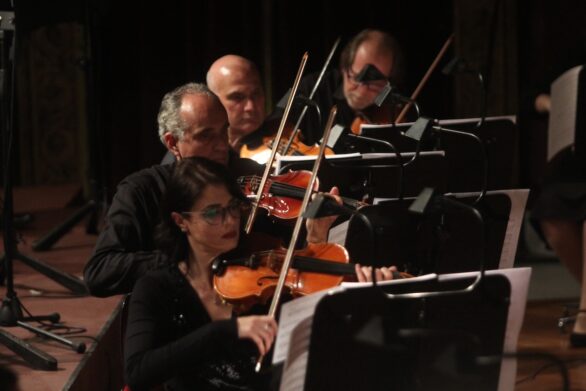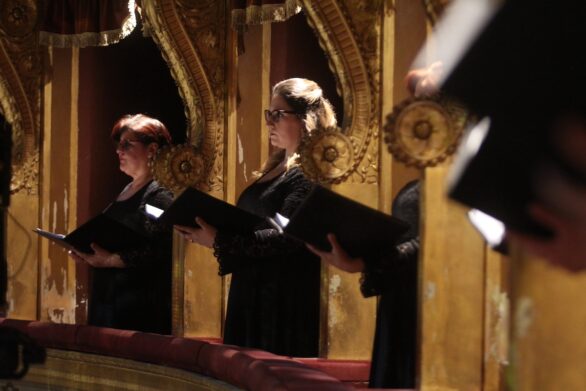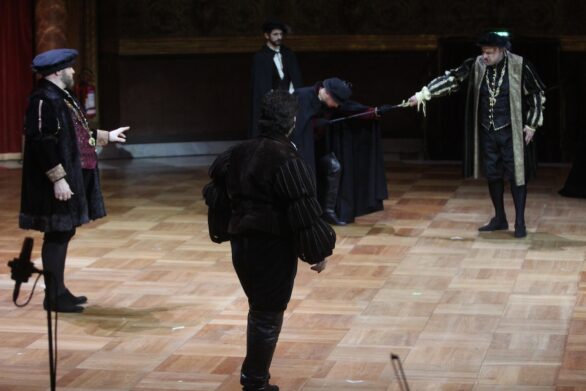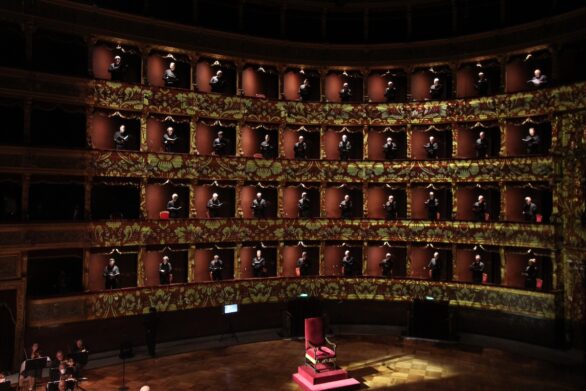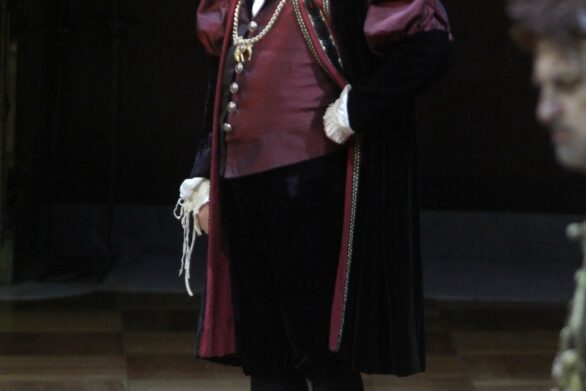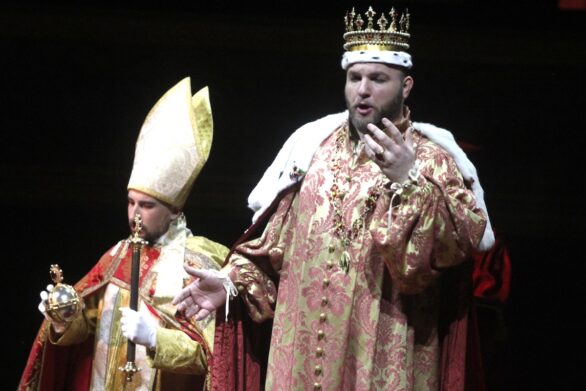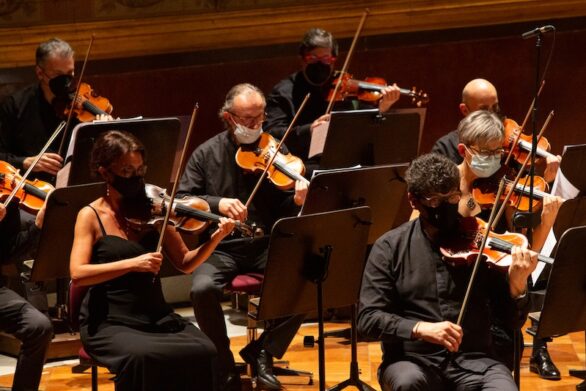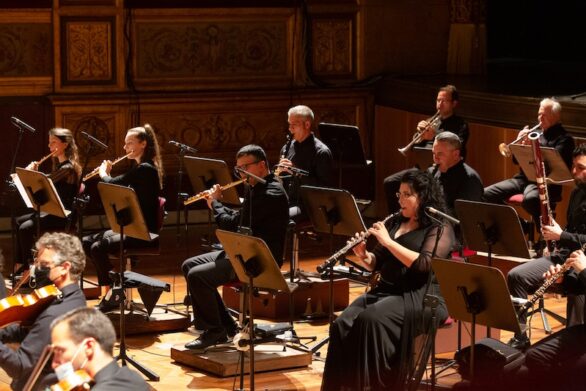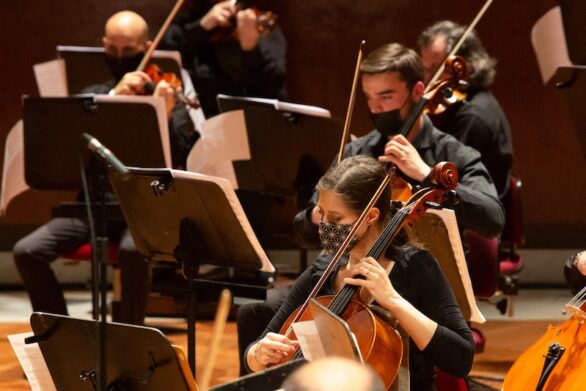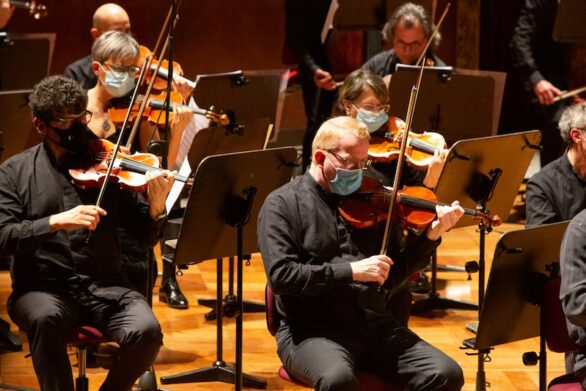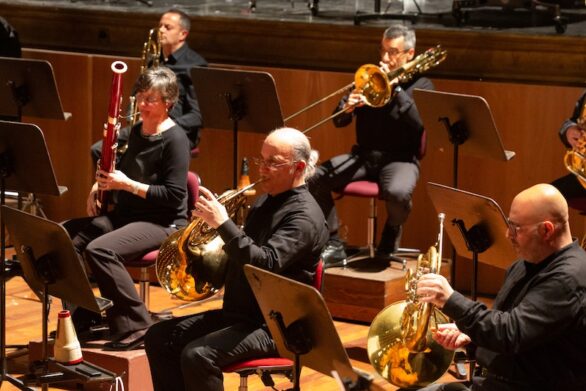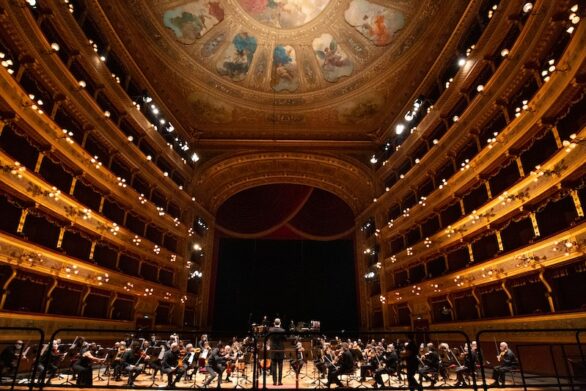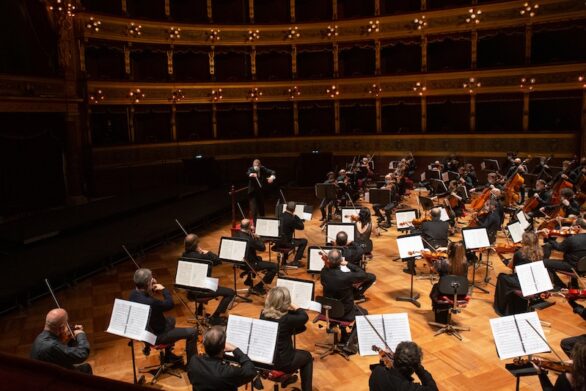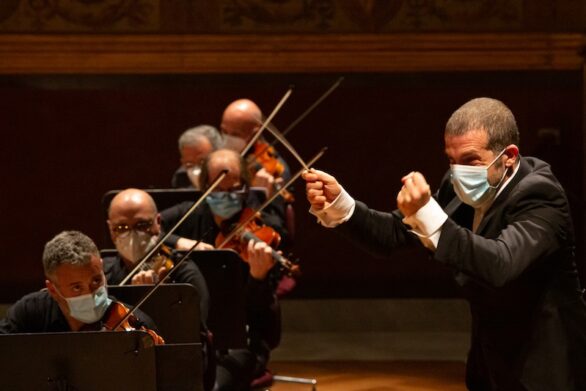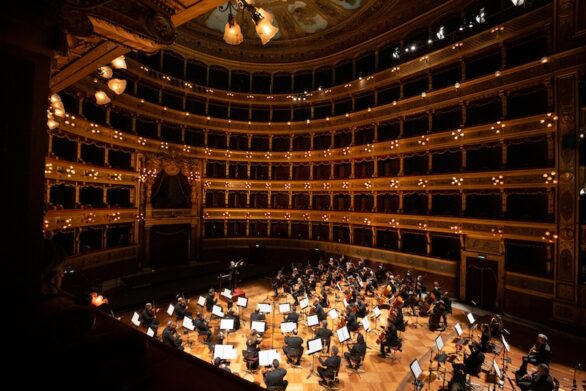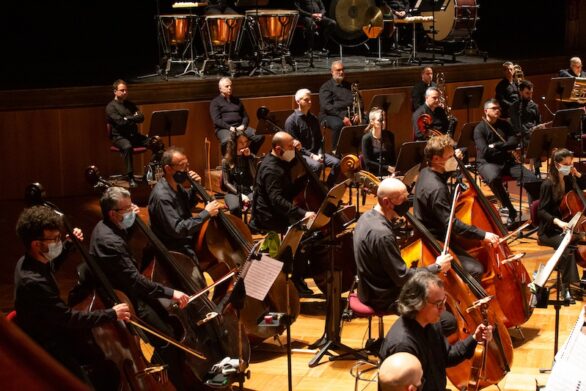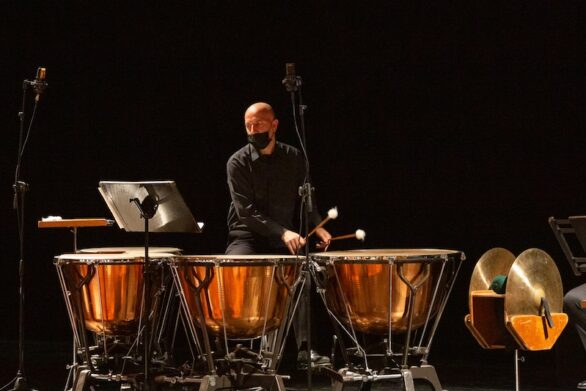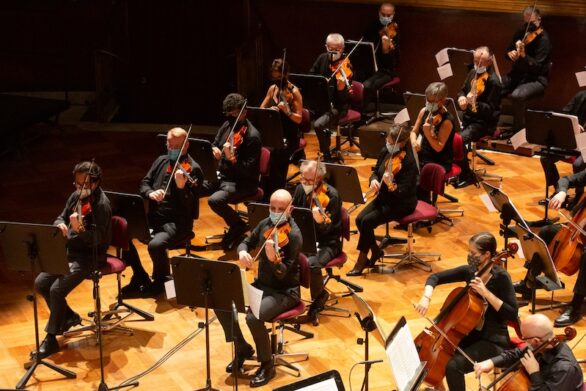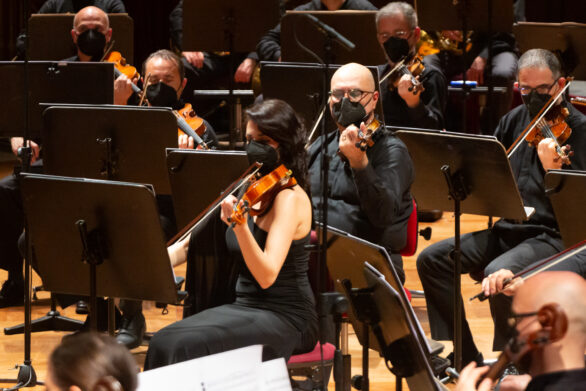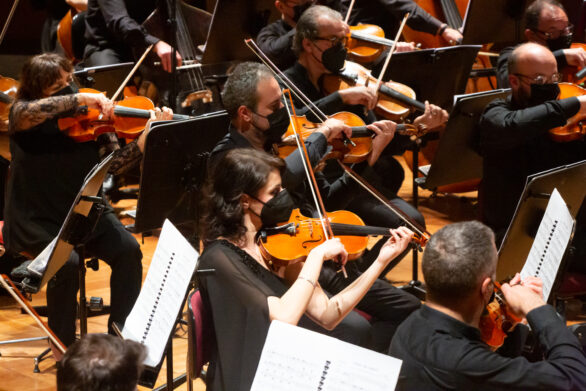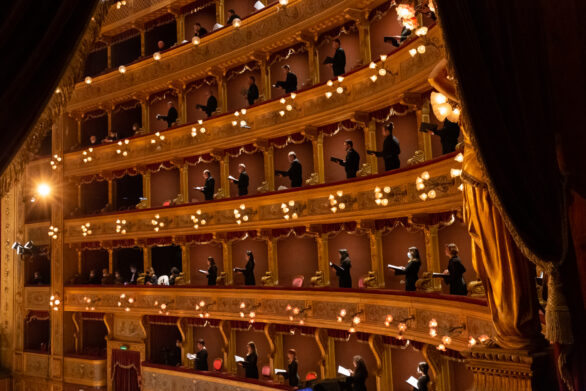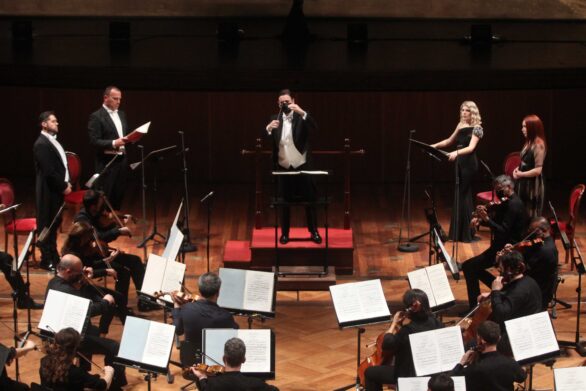About
Duomo di Monreale
Conductor and Trombone Michele De Luca
Massimo Youth Orchestra
Programme
Arcangelo Corelli
Concerto grosso per la notte di Natale
Violini Denise De Luca, Simone Carollo
Violoncello Giuseppe D’Amato
Johann Sebastian Bach
Suite No. 3 in D Major BVW1068
Georg Christoph Wagenseil
Concerto per trombone alto e orchestra
Trombone Michele De Luca
Simone Piraino
Intermezzo
Leroy Anderson
A Christmas Festival
James Lord Pierpont
Jingle Bells
Photo © Franco Lannino
About
Ripar-Tänze Suite (Cavatina op. 130)
Choreography Davide Bombana
Music Ludwig van Beethoven
Assistant Roberto Zamorano
Reciting voice Marco Pierin
Conductor Justin Brown
Teatro Massimo Ballet and Orchestra
Programme
Cantus
Choreography Davide Bombana
Music Arvo Pärt
After the Rain
Choreography Christopher Wheeldon
Music Arvo Pärt
Étoiles
Alessandra Ferri
Federico Bonelli (Royal Ballet di Londra)
Chamber Symphony
Choreography Lucinda Childs
Music John Adams
Choreography directed from Thomas Mayr
Photo © Rosellina Garbo
About
Tuesday, January 26 2021, 08:00 pm
Livestreaming Performance on the Teatro Massimo WebTv
This event is part of the project #apertinonostantetutto (We keep going, regardless)
Conductor Omer Meir Wellber
Director, dramaturgy, Scenes, Costumes and Lighting Designs Johannes Erath
Video Bibi Abel
Chorus Master Ciro Visco
Youth Chorus Master Salvatore Punturo
Coreographer Dies Irae Davide Bombana
Assistant Director Lorenzo Nencini
Coreographic Movements Ugo Ranieri
Music by Claudio Monteverdi, Henry Purcell, Joseph Haydn, Ludwig van Beethoven, Gioachino Rossini, Franz Schubert, Richard Wagner, Giuseppe Verdi, Modest Musorgskij, Arrigo Boito, Richard Strauss, Erich Korngold, Werner Richard Heymann, Chava Alberstein
Teatro Massimo Orchestra, Chorus, Ballet and Youth Chorus
Sound Project & Design Manfredi Clemente
Concept and Broadcasting co-ordinator Gery Palazzotto
Television Producer Antonio Di Giovanni
Cast
Cast
Soprano Carmen Giannattasio
Baritone Markus Werba
Basso Alexandros Stavrakakis
Highlights
Johannes Erath creates a site specific performance for the 2021 opening of the Teatro Massimo season, in live streaming, free of charge and accessible worldwide.
Il Crepuscolo dei Sogni (The Twilight of Dreams) is a site-specific opera by the German visionary director Johannes Erath who is making his debut in Italy and who is also responsible for the show’s dramaturgy and sets. Musical Director Omer Meir Wellber will be conducting. Every corner of the opera house becomes part of a wider stage, under a moonlight that tranforms everything it encounters. The scenic space will be completely transformed by the specifically created sets lit by a lunar light, immersed in a snow that covers and transfigures all shapes and forms. A different place that becomes the landscape of the soul and that recalls today’s condition, that of a disoriented and isolated humanity who has lost all certainties and reference points and is dealing with distances, separations, screens, and new communication modes. Within this suspended set, alternating hope and despondency, art and music remain the highest forms of hope.
Erath and Wellber thus create a musical “Winter Journey” through various moments from different operas, from Rossini to Verdi, from Monteverdi to the Lieder of Schubert and Richard Strauss, with the recurring presence of “Traviata”, whose protagonist is afflicted by a lung disease that reminds us of today’s human sufferings. This journey, that alternates contrasting feelings, culminates with the chorus from the Prologue of Arrigo Boito’s “Mefistofele” which, after showing us the most disenchanted and cynical aspects through Mefistofele’s aria, embodies the spirit that brings back light and hope, and with the final duet from Claudio Monteverdi’s “Incoronazione di Poppea”: two ecstatic moments, divine the first, terrestrial the second.
Photo © Rosellina Garbo
Info
Friday, February 26 2021, 08:00 pm
Auditorium
Livestreaming Opera on the Teatro Massimo WebTv
This event is part of the project #apertinonostantetutto (We keep going, regardless)
Giuseppe Verdi
Ernani
Opera in four parts
Libretto Francesco Maria Piave
This opera is dedicated to Vincenzo La Scola, in memory of his extraordinary performance in 1999.
We remember dearly the artist and the man.
Conductor Omer Meir Wellber
Mise en espace Ludovico Rajata
Costume Designs and Visual Project Francesco Zito
Visual Project Andrea Fiduccia
Digital Animation Fabiola Nicoletti
Lighting Designs Giuseppe Di Iorio
Chorus Master Ciro Visco
Teatro Massimo Orchestra and Chorus
Concept and Broadcasting co-ordinator Gery Palazzotto
Sound Producer Manfredi Clemente Antonio Di Giovanni
Cast
Cast
Elvira Eleonora Buratto
Ernani Giorgio Berrugi
Don Carlo Simone Piazzola
Silva Michele Pertusi
Giovanna Irene Savignano
Don Riccardo Carlo Bosi
Jago Andrea Pellegrini (winner of the special award offered by the Teatro Massimo at the Tenor Vinas Award)
Gallery
Photo © Franco Lannino
Info
Saturday 13 March 2021, 8pm
Livestreaming Performance on the Teatro Massimo WebTv
This event is part of the project #apertinonostantetutto (We keep going, regardless)
Conductor Omer Meir Wellber
Teatro Massimo Orchestra
Sound Project & Design Manfredi Clemente
Concept and Broadcasting co-ordinator Gery Palazzotto
Television Producer Antonio Di Giovanni
Programme
Pëtr Il'ič Čajkovskij
Symphony no. 6 in B minor Pathetica op. 74
Gallery
Photo © Rosellina Garbo
Info
Saturday, March 20 2021, 08:00 pm
Livestreaming Concert on the Teatro Massimo WebTv
This event is part of the project #apertinonostantetutto (We keep going, regardless)
Conductor Francesco Lanzillotta
Chorus Master Ciro Visco
Soprano Angela Meade
Mezzosoprano Marianna Pizzolato
Tenor Enea Scala
Baritone Nicola Alaimo
Teatro Massimo Orchestra and Chorus
Programme
Giuseppe Verdi
“Tu che le vanità” from Don Carlo
“Patria oppressa” from Macbeth
Act III opening scene and arias from Un ballo in maschera:
“Morrò ma prima in grazia”
“Eri tu”
Gioachino Rossini
“Sois immobile” from Guillaume Tell
“Ai capricci della sorte” from L’italiana in Algeri
“Serbami ognor sì fido” from Semiramide
“O patria… Di tanti palpiti” from Tancredi
Gaetano Donizetti
“Il segreto per esser felici” from Lucrezia Borgia
“Spirto gentil” from La favorita
“Un tenero core” from Roberto Devereux
“Venti scudi” from L’elisir d’amore
Vincenzo Bellini
“Svanir le voci” from Norma
“Guerra, guerra” from Norma
“Col sorriso d’innocenza” from Il pirata
Gallery
Photo © Franco Lannino
Info
Follow us on the Teatro Massimo WebTV for the streaming of the following events
March 21 2021 (available in streaming from March 28 11am)
Schubert – Dvořák
Conductor Riccardo Muti
Luigi Cherubini Youth Orchestra
March 27 2021 at 11:30am (livestreaming)
Palazzo delle Aquile
Honorary Citizenship Ceremony
March 27 2021 (available in streaming from April 18 8pm)
Verdi Requiem
Conductor Riccardo Muti
Chorus Master Ciro Visco
Soprano Joyce El-Khoury
Mezzosoprano Martina Belli
Tenor Francesco Meli
Bass Riccardo Zanellato
Teatro Massimo Orchestra and Chorus

Riccardo Muti – official website
Photo © Todd Rosenberg Photography – by courtesy of riccardomutimusic.com
Programme
Franz Schubert
Symphony No. 3 in D major D200
Antonín Dvořák
Symphony No. 9 in E minor “From the New World”
Giuseppe Verdi
Requiem Mass
Gallery
Photo © Rosellina Garbo
Info
Saturday, April 3 2021, 06:00 pm
Livestreaming Concert on the Teatro Massimo WebTv
This event is part of the project #apertinonostantetutto (We keep going, regardless)
Conductor Michele Spotti
Chorus Master Ciro Visco
Soprano Giuliana Gianfaldoni
Mezzosoprano Vasilisa Berzhanskaya
Tenor Edgardo Rocha
Bass Luca Tittoto
Teatro Massimo Orchestra and Chorus
Concept and Broadcasting co-ordinator Gery Palazzotto
Sound Producer Manfredi Clemente
Television Producer Antonio Di Giovanni
Programme
Wolfgang Amadeus Mozart
Symphony No. 41 in C major K551 Jupiter
Gioachino Rossini
Stabat Mater for soloists, chorus and orchestra
Gallery
Photo © Franco Lannino
Info
Tuesday, May 4 2021, 06:30 pm
Livestreaming Ballet available on the Teatro Massimo WebTv
This event is part of the project #apertinonostantetutto (We keep going, regardless)
Coreographer Marco Goecke
Set & Costume Designs Michaela Springer
Lighting Designs Udo Haberland
Dramaturgy Esther Dreesen-Schaback
Production restaged by Fabio Palombo
Maître de ballet Jean-Sébastien Colau
A production of the Zurich Opernhaus
Music by
Fryderyk Chopin Concerto for piano and orchestra no. 1 in E minor op. 11
Russian Lullaby (traditional) dal CD A Circle Is Cast registrato e arrangiato da Libana (libana.com)
Claude Debussy Prélude à l’après-midi d’un faune
Fryderyk Chopin Concerto for piano and orchestra no. 2 in F minor op. 21
Conductor Keren Kagarlitsky
Piano Alexander Gadjiev
Teatro Massimo Ballet and Orchestra
This version of the ballet has been adapted to the security regulations
Concept and Broadcasting co-ordinator Gery Palazzotto
Sound Engineering Manfredi Clemente
Television Producer Antonio Di Giovanni
Cast
Cast
Nijinski Alessandro Cascioli
Diaghilev Michele Morelli
Matka, la madre Romina Leone
Tersicore Martina Pasinotti
Amico Isajef Giovanni Traetto
Romola Linda Messina
Dottore Diego Mulone
La morte, “Quel Qualcosa” Giorgia Leonardi
Microboy Emilio Barone
Libellula Yuriko Nishihara
Libellula uomo Alessandro Casà
Ragazza sbarra Jessica Tranchina
Spettro della rosa Francesca Bellone
Solo sogno Francesca Davoli
Solo sogno e Solo in rosso Vincenzo Carpino
Ragazza in rosso Madoka Sasaki
Scena gruppo Vito Bortone
Photo © Rosellina Garbo
Highlights
Created in 2016, Nijinski is an award-winning show that has toured the world and is signed by German choreographer Marco Goecke, artist in residence in prestigious European companies such as the Gauthier Dance/Theaterhaus in Stuttgart, the Nederland Dans Theater in The Hague and director of the Staatsballett of Hanover. “As a choreographer – says Marco Goecke – Nijinsky has always looked for new ways of expression … It was clear to me from the beginning that I wanted to create an emotional choreography, which drew inspiration from Nijinsky's character, but which absolutely had to go beyond the narrow frame of the biography”.
Goecke's choreography is characterized by very rapid, minute and nervous movements, hands that vibrate, arms that swirl in the air, gestures that could recall sequences from silent cinema and that evoke many of the ballets that made Nijinski and the Balletts Russes famous: from Petrushka to L’après– midi d’un faune, from Le specter de la rose to Le sacre du printemps.But they also give us the entire progression of the illness into which Nijinski gradually sank, until he was lost, consumed by schizophrenic delirium.
